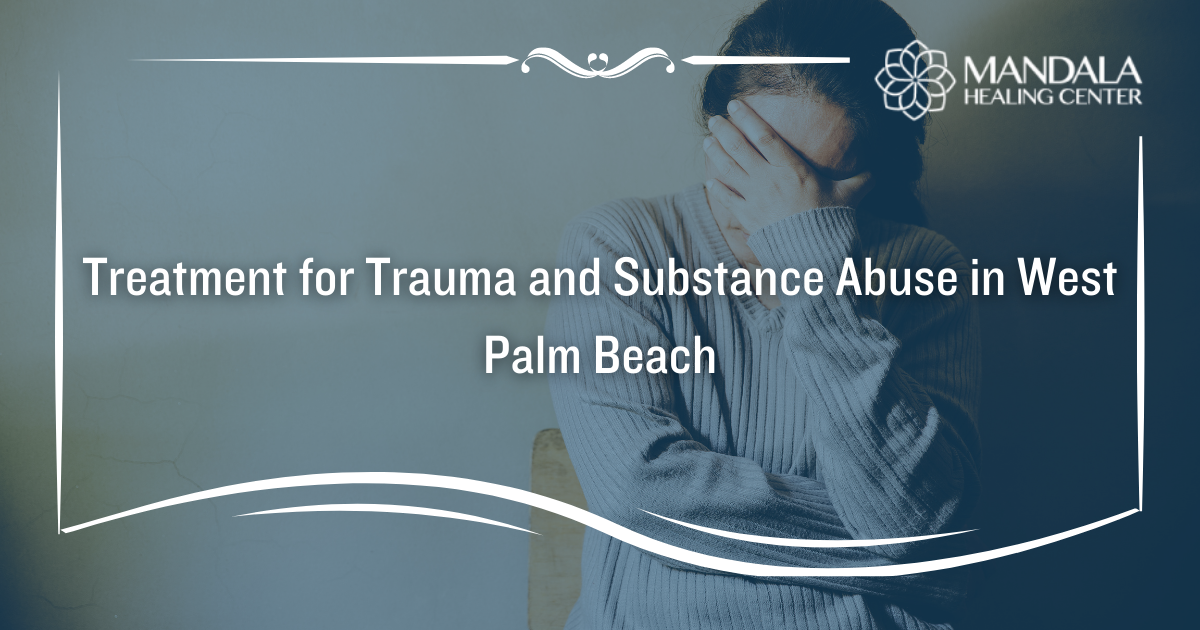The path of addiction is different for each person who travels it. Environmental and biological risk factors may make it more likely that someone will develop an addiction to drugs or alcohol, but anyone can find themselves struggling with substance abuse or addiction.
People who have experienced trauma face a greater risk of developing an addiction to drugs or alcohol. Trauma is a long-lasting response to an acutely stressful event. This may occur as a response to an accident, assault, natural disaster, death of a loved one, or any other event that causes overwhelming stress or fear.
Trauma can develop immediately after the stressful event or may show up years down the line. The symptoms of trauma can vary over the course of a person’s life, too. While they can change over time, the symptoms of trauma can cause people a great deal of emotional pain and discomfort. Without professional treatment, some people turn to drugs or alcohol to dull the psychological pain of their trauma.
If you or someone you care about are struggling with trauma and substance abuse, effective treatment is available. You do not have to live with the effects of your trauma or suffer the consequences of addiction alone. Reach out to the compassionate staff at the Mandala Healing Center for information about the addiction treatment programs we offer.
Understanding Trauma-Informed Care
Trauma-informed care is treatment that is designed to treat people with a history of trauma. Instead of looking at only the behaviors and habits of people in addiction treatment, it seeks to understand and heal the trauma caused by past events. A trauma-informed care approach does not ask “what is wrong with this person?”. Instead, it asks, “what happened to this person?”.[1]
The goal of trauma-informed care is to discover the root cause of trauma and to help the person learn skills to cope with and heal the symptoms of it.
In trauma-informed addiction treatment, people receive comprehensive treatment for their addiction from professionals with an understanding of trauma. Trauma-informed care for addiction usually involves additional therapy sessions, skill-building, and education related to trauma.
Treatment for Trauma and Substance Abuse
Nearly 70% of patients who seek treatment for substance abuse or addiction have a history of trauma.[2] When someone lives with addiction and has a history of trauma, they need treatment for both conditions. People must receive treatment for their addiction that also helps them to identify and heal their trauma.
Treatment for trauma and addiction comes in many forms and may include:[3]
Psychodrama
Using special dramatic exercises, people learn how to manage their substance abuse. They also develop new ways to cope with trauma and stress.
Breathwork
People learn special breathing tools that help them manage stress and anxiety. Mindful breathing can help people overcome mental blocks and is a valuable addition to many forms of trauma and addiction treatment.
Experiential therapy
By practicing special movements through various activities, people can experience new awareness and ease when discussing their addiction.
Eye Movement Desensitization Reprogramming (EMDR)
A trained therapist guides a patient through a series of eye movements that can help with identifying and healing sources of trauma.
Brainspotting
This form of therapy helps identify parts of the brain that are involved with the symptoms of trauma and can lead to greater healing. Like EMDR, it involves special eye movements.
Practitioners may offer a variety of trauma-informed care options, or they may specialize in just one. It is important to ensure the therapist can offer treatment for trauma and substance abuse at the same time.
How to Know if You Need Treatment for Trauma and Substance Abuse
Your medical professional or addiction specialist in West Palm Beach can help you determine which course of treatment is right for you based on your history of substance abuse and trauma. When determining how trauma has impacted a person’s life, trauma specialists consider the “Three Es”:
- Event: This is the precipitating event for the trauma. It might be bullying, a significant death, natural disaster, abuse, assault, neglect from a primary caregiver, or any other event that caused severe stress.
- Experience: This is the way a person understands the traumatic event and perceives what happened. It includes memories of the event and a person’s emotional responses to it. The way people react to the same event can vary–one person may respond with sadness and anxiety while another reacts with rage.
- Effects: The effects of trauma can vary from person to person and throughout a person’s life. They include poor memory, hypervigilance, physical and mental fatigue, avoidance of triggers, and difficulty coping with stress.
For some people, the symptoms of trauma are unbearable. Without treatment, people may turn to substances for relief.
If you have a history of trauma and have been using drugs or alcohol to cope, effective treatment exists. You do not have to live with your trauma or addiction.
Find Treatment for Trauma and Addiction in West Palm Beach Today
You do not need to live with untreated addiction and trauma. Effective treatment is available. Reach out to the compassionate staff at the Mandala Healing Center for information about the trauma-informed care we offer.
Don’t wait another moment for the treatment you need and deserve. Call today to speak with one of our admissions counselors about getting started.
References:
- https://www.health.harvard.edu/blog/trauma-informed-care-what-it-is-and-why-its-important-2018101613562
- https://www.ncbi.nlm.nih.gov/pmc/articles/PMC3051362/
- https://www.apa.org/ptsd-guideline/treatments












